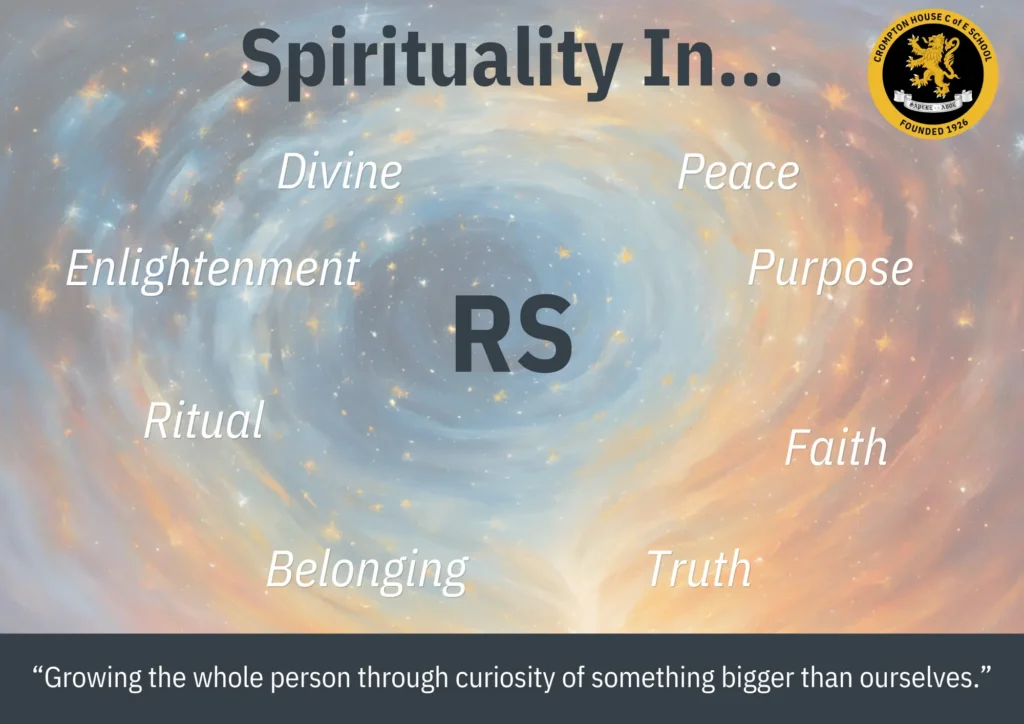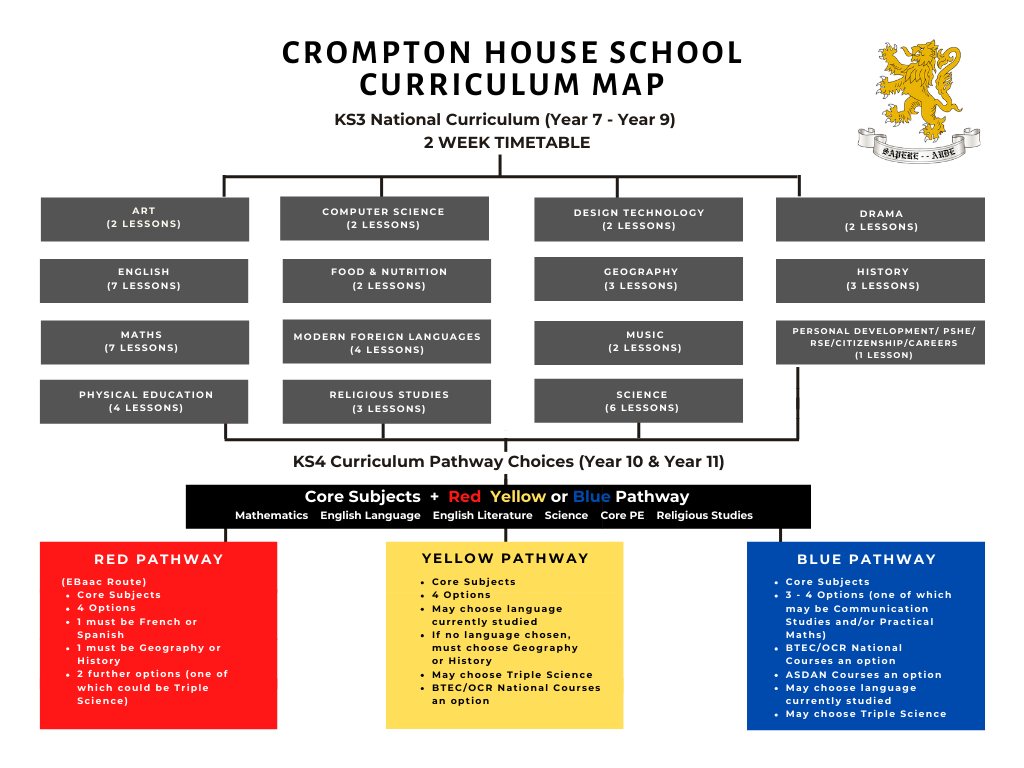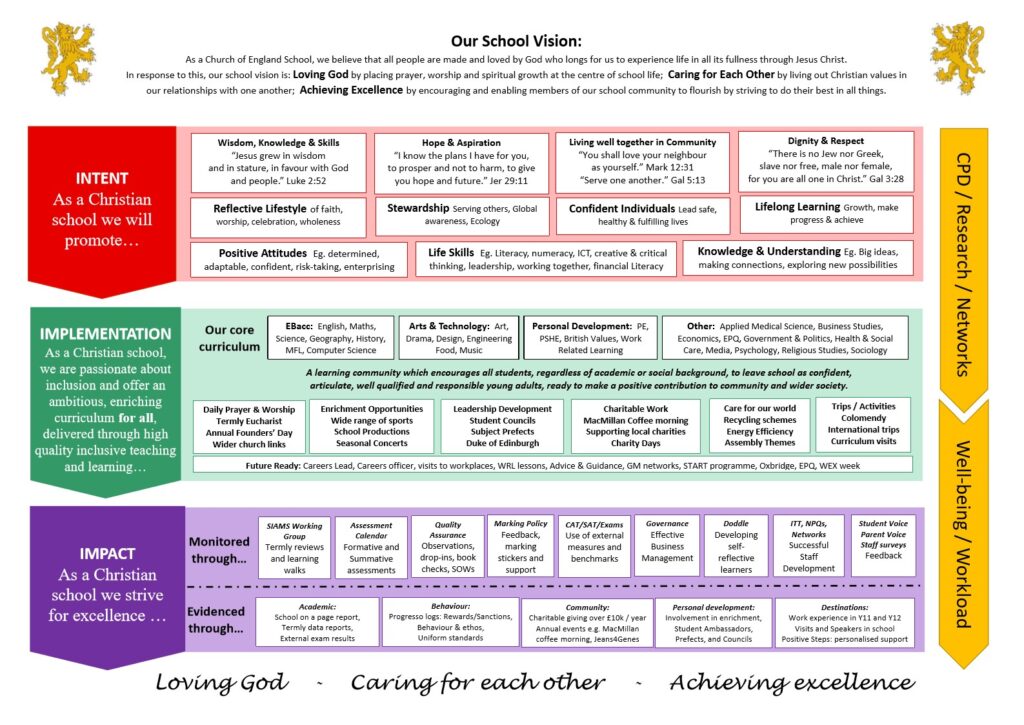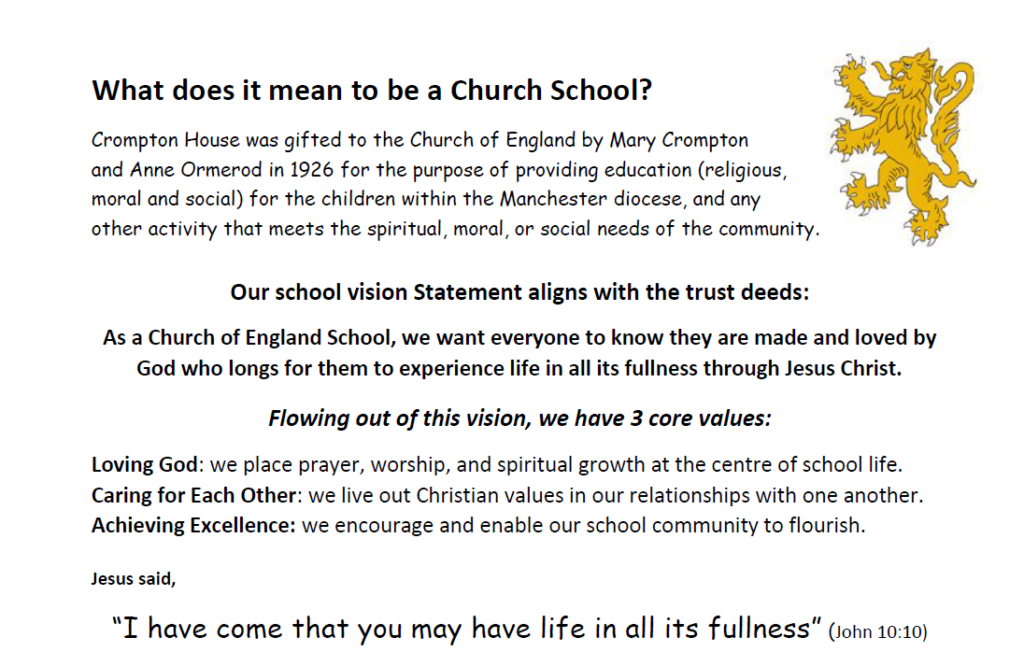Religious Studies
As a Church of England school, supporting the social, moral, spiritual and cultural development of students is central to our ethos.
Through Religious Studies we aim:
- To deliver a coherently planned and sequenced curriculum that is ambitious and designed to give all learners the knowledge and cultural capital they need to succeed in life.
- To explore big questions about life, to find out what people believe and what difference this makes to how they live.
- To help students have a greater understanding of the main religious tradition of Great Britain – Christianity.
- To learn about different religions, to know what people believe and what difference this makes to how they live.
- To learn from religion – to help pupils make sense of religion, reflecting on their own ideas and ways of living.
- To allow pupils to flourish individually within their communities and as citizens in a pluralistic society and global community by our curriculum being multi faith.
- To encourage pupils to learn from different religions, beliefs, values and traditions whilst exploring their own beliefs and questions of meaning.
- To allow pupils to recognise the different ways in which religion can be interpreted, helping students to understand the personal element of faith.
- To allow pupils to articulate their own personal beliefs, values and experiences while respecting the right of others to differ.
Religious studies is separate from collective worship and it is not religious instruction. Our curriculum has its own distinct purpose and place within school life at Crompton House
Religious Studies at Crompton House supports the legal requirement that Religious Studies is a statutory subject of the curriculum for all pupils (s 71 SSFA 1998). The syllabus reflects the fact that the religious traditions in Great Britain are in the main, Christian, while taking into account the teaching and practices of the other principle religions represented in Great Britain. (s 375 (3) Education Act 1996)
Religious Education is given 3 hours a fortnight to all students in Years 11-16 delivered by 5 specialist staff who have outstanding subject knowledge across the age ranges taught.
To reflect our Christian ethos, our schemes of work are drawn from both the Oldham Local Agreed Syllabus and the Manchester Diocesan Agreed Syllabus. We give 50% of our curriculum time to the study of Christianity.
Our multifaith curriculum also includes the study of Judaism, Islam, Sikhism, Buddhism and non-religious worldviews as recommended by the Oldham Local Agreed Syllabus and the Manchester Diocesan Agreed Syllabus.
Lessons are planned and delivered in a variety of ways to ensure that the curriculum is accessible to all students.
In year 10 and 11 all students follow an accredited GCSE course, studying Christianity and Judaism. The majority of our students follow a full course GCSE following AQA A Specification. A small minority follow a short course.
Students are assessed twice a year in RS, in accordance with the whole school assessment policy. Progress in RS is reported to parents biannually. The data is used by staff to support the delivery of the curriculum.
Within each lessons staff check pupils’ understanding systematically, identify misconceptions accurately and provide clear, direct feedback. In so doing, they respond and adapt their teaching as necessary without unnecessarily elaborate or individualised approaches.
Religious education develops the ability to:
- Succeed in their GCSE in Religious Studies.
- Show their knowledge and understanding of, and their ability to respond to, Christianity, other principal world religions, other religious traditions and world views. This is highlighted in the RS results achieved by students.
- Successfully apply this knowledge to themes, showing an understanding of the influence of faith and belief on individuals, societies, communities and cultures.
- Leave Crompton House with an awareness and understanding of religions and beliefs, teachings, practices and forms of expression;
- learn about religious and ethical teaching, enabling them to make reasoned and informed responses to religious, moral and social issues;
- Reflect on, consider, analyse, interpret and evaluate issues of truth, belief, faith and ethics and to communicate their responses.
- Develop their sense of identity and belonging in the world, preparing them for life as citizens in a multi-cultural global society, where they can exist in harmony with others and live life to the full.
- Access a Key Stage 3 curriculum which supports the students’ understanding of the school’s Christian ethos and introduces the skills needed for success in the three-year GCSE course.






